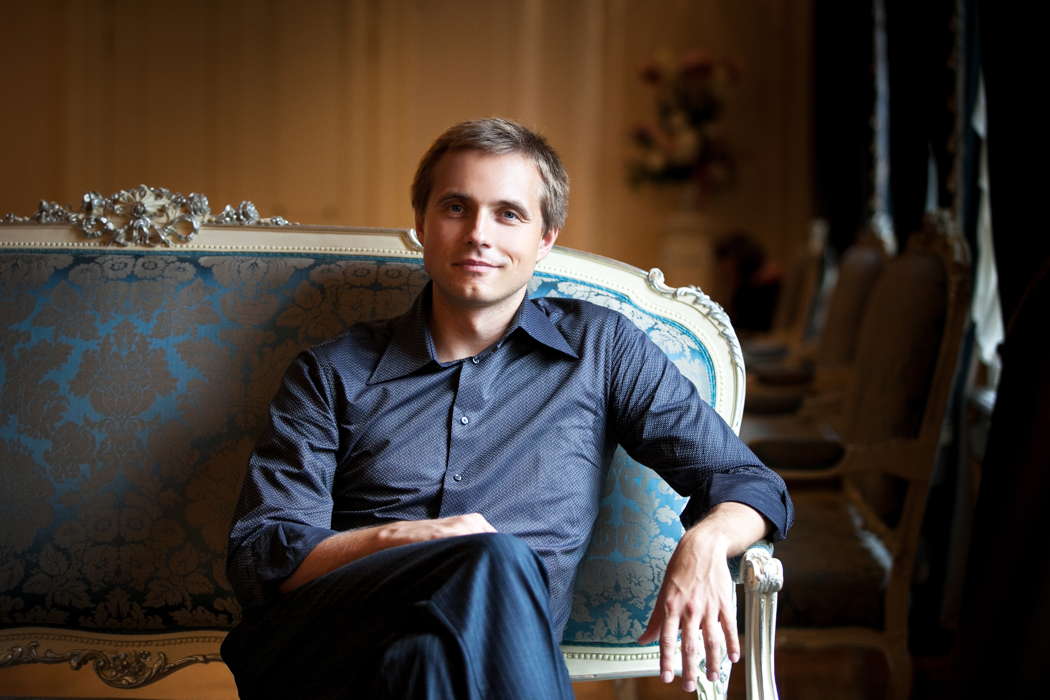 UPDATES: There's a new feature every day at Classical Music Daily. Read about the various ways we can keep in touch with you about what's happening here.
UPDATES: There's a new feature every day at Classical Music Daily. Read about the various ways we can keep in touch with you about what's happening here.
- Royal College of Music
- Donald H White
- saxophone
- Gershwin
- Ludmila Brzhazovskaya
- Sir Arthur Bliss
- Esther Yoo
- Devon
 VIDEO PODCAST: New Recordings - Find out about Adrian Williams, Andriy Lehki, African Pianism, Heinrich Schütz and Walter Arlen, and meet Stephen Sutton of Divine Art Recordings, conductor Kenneth Woods, composer Graham Williams and others.
VIDEO PODCAST: New Recordings - Find out about Adrian Williams, Andriy Lehki, African Pianism, Heinrich Schütz and Walter Arlen, and meet Stephen Sutton of Divine Art Recordings, conductor Kenneth Woods, composer Graham Williams and others.
Unmistakeably Balletic
MIKE WHEELER is impressed by the partnership between Vasily Petrenko and the Royal Philharmonic Orchestra in music by Tchaikovsky and Prokofiev, and by Esther Yoo's performance of Bruch's first violin concerto
Four seasons in, Vasily Petrenko's post as Music Director of the Royal Philharmonic Orchestra is firmly established as one of the great orchestra-conductor partnerships.
In Tchaikovsky's Romeo and Juliet - Royal Concert Hall, Nottingham, UK, 27 March 2025 - they brought out the ecclesiatical chant character of Friar Laurence's theme, the early string entries already had tragic implications, and the fight music was intense, even vicious. The soft, swaying music was headily atmospheric, and the love theme's progress was vividly charted, from the inherent sadness of Patrick Flanaghan's initial cor anglais solo, to the expansive treatment given to the theme's final climactic appearance. The precipitate fall into the final tragedy brought a tearful lament in its wake, and the final chords made a shattering impact.
The performance of Bruch's Violin Concerto No 1 that followed was no routine trot through familiar music that must be so easy to take for granted. Soloist Esther Yoo's first entry had an exploratory feel, and as the movement unfolded, the vigourous episodes were finely balanced against the more relaxed ones. Passage-work was not just a matter of filling otherwise empty space. Some fragile solo moments stood out, not least the transition into the second movement, where the playing, from soloist and orchestra alike, had grace, poise, and a clear singing tone. In the finale, the gypsy-inflected dance rhythms were incisive, informed by Yoo's crisp bowing. The scamper at the end was captivating. Yoo's almost improvisatory account of her solo Bach encore linked back to her similar approach to the concerto's opening.

Esther Yoo. Photo © Je Won Kim
After the interval, the searching character of Prokofiev's Symphony No 5 responded well to the big-boned treatment it received. From the gentle lead-in to the first movement, a sense of purpose gradually took hold. Grand statements were finely balanced with quieter episodes, and the coda had all the weight it needed. There was no break before a second movement full of racing, balletic energy, evoking a stage filled with motion. Among the many ear-catching details, Katy Ayling's wonderfully oily bass clarinet solo stood out. The machine-like approach to the ending had a kind of dark exhilaration.
The third movement felt a touch slower than in previous performances I've heard, but the expansive treatment felt exactly right - wary, guarded, with the opening woodwind theme trying to find a way through. A mechanistic feel again became more insistent, turning the movement into a huge machine-age sarabande. The climax echoed the clocks striking midnight in Prokofiev's Cinderella, before a fragile weariness took over in the coda. The finale followed straight on, taking a while to shake off the previous mood. Once the quick music got under way, its propulsive quality was, again, unmistakeably balletic.

Vasily Petrenko. Photo © 2000 Svetlana Tarlova
More mechanisms eventually entered the picture, leaving us with an ending every bit as ambiguous as that of the other great Soviet Fifth Symphony, Shostakovich's.
Copyright © 7 April 2025
Mike Wheeler,
Derby UK



